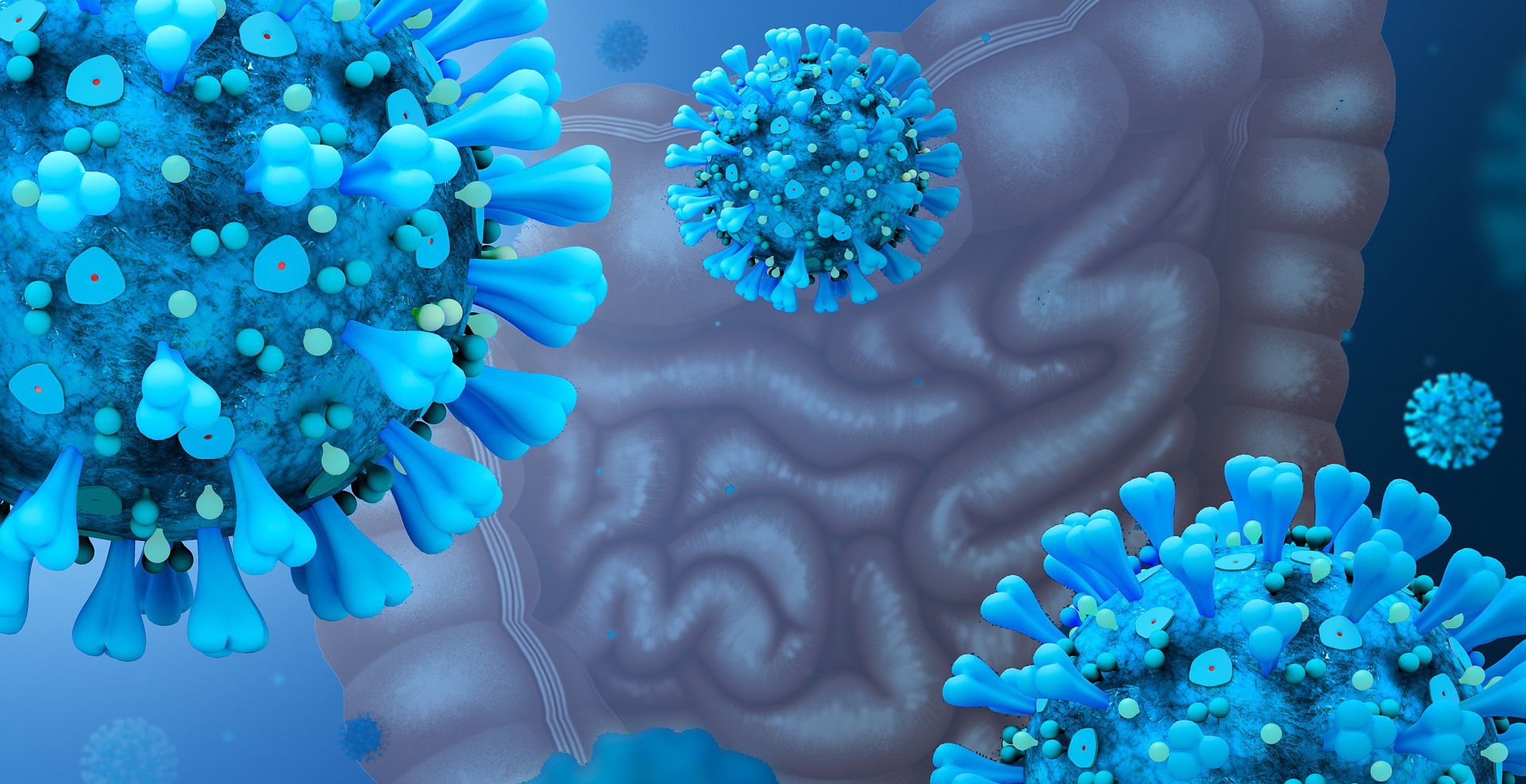Is Gut Health Related to COVID-19 Risk and Severity?

PREMIUM CONTENT for MEMBERS ONLY
“A state of dysbiosis may play a role in the susceptibility and clinical course of the viral infection.”
As the numbers of COVID-19 infected patients and associated mortality have been increasing worldwide, both geographical as well as individual-level risk factors have been emerging, including older age, frailty, the presence of so-called comorbid conditions and socio-economical factors. As these same risk factors have recently been associated with alterations in the composition and function of the gut microbiome (also referred to as a state of dysbiosis), a number of scientists have been speculating that a state of dysbiosis may play a role in the susceptibility and clinical course of the viral infection. There are at least 4 scientific reports to date that have shown associations between different measures of dysbiosis and infected patients,1, 2, 3, 4 all of which identified a similar reduction in the relative abundance of beneficial microbes, including taxa able to produce the anti-inflammatory short chain fatty acid butyrate. While none of these studies provides unequivocal information about a causative role of dysbiosis in COVID-19 risk and outcomes, there is a growing body of circumstantial evidence to support such a hypothesis.
The comorbid medical conditions are chronic non-communicable diseases (NCDs), such as several autoimmune diseases, obesity, metabolic syndrome (which includes hypertension, hyperlipidemia and type 2 diabetes), chronic cardiovascular diseases, non-alcoholic fatty liver disease and several types of cancer. During the past 75 years we have witnessed an epidemic of NCDs. In the US, some of the identified risk factors interact, with comorbid conditions being more prevalent amongst African Americans, Latinos and lower income Caucasians. While the prevalence of these diseases continues to rise, and is now affecting younger individuals, and people in developing countries, the mortality of many of these conditions has been kept stable or even reduced due to a massive increase in the use of medical and pharmacological interventions, including drugs that lower blood lipids and blood pressure, but don’t remedy the underlying dysregulation. There is growing evidence for the role of diet-induced low grade immune activation of the gut, increased gut permeability (“leakiness”), and resulting system-wide low grade inflammation in contributing to the NCD epidemic in genetically vulnerable individuals, in particular in the elderly. I have discussed this evidence in my upcoming book, The Gut Immune Connection.5
“The increased gut permeability and dysregulation of the gut based immune system”may predispose people to develop more severe and lethal outcomes.”
It has been suggested6 that the increased gut permeability and dysregulation of the gut based immune system that is one of the root causes of the NCD epidemic, also is the mechanism that predisposes individuals to get not only infected with COVID-19 but also develop more severe and lethal outcomes. While there have been earlier pandemics of viral and bacterial diseases, the world has witnessed 3 serious outbreaks of severe, more lethal outbreaks of fatal coronavirus-related diseases, including the current COVID-19 pandemic only in the last 2 decades.
“We may just be witnessing the beginning of such world wide pandemics.”
Microbiome scientists like Martin Blaser7 have warned more than a decade ago of such devastating pandemics for some time, and there are many voices that are warning we may just be witnessing the beginning of such world wide pandemics. The reasons for this warning are related to gut microbial disturbances caused by our modern life style, including the Western diet, inappropriate wide spread use of antibiotics, encroachment on habitats of wild animals eliminating the safe distance between animal borne viruses, and the extreme conditions of modern meat production and processing.
“Focusing on a dramatic change in our dietary habits will be essential to reduce the continuously increasing risk of pandemics in the future.”
Focusing on the likely link between the multiple lifestyle changes that have occurred during the past 75 years, in particular in our diet, gut health and the risk for pandemic diseases will not lead to short term changes in our response to the current pandemic, which as everybody agrees requires world wide vaccinations combined with mask wearing, social distancing measures and possible novel medications to reduce the severity of disease in affected patients. However, dealing with the epidemic of chronic non-communicable diseases, and focusing on a dramatic change in our dietary habits will be essential to reduce the continuously increasing risk of pandemics in the future.
References
- Gu et al.
- Zuo et al. Gastroenterology 159:944–955.e8.
- Gou et al. MedRxiv
- Yeoh YK et al. Gut 2021; 0:1-9. doi:10.1136/gutjnl-2020-323020
- Mayer EA. The Gut Immune Connection, Harper & Collins 2021
- Kim HS. mBio 2021 Volume 12 Issue 1 e03022-20
- Blaser M. Missing microbes. Henry Holt and Co., New York, 2014

Emeran Mayer, MD is a Distinguished Research Professor in the Departments of Medicine, Physiology and Psychiatry at the David Geffen School of Medicine at UCLA, the Executive Director of the G. Oppenheimer Center for Neurobiology of Stress and Resilience and the Founding Director of the Goodman-Luskin Microbiome Center at UCLA.